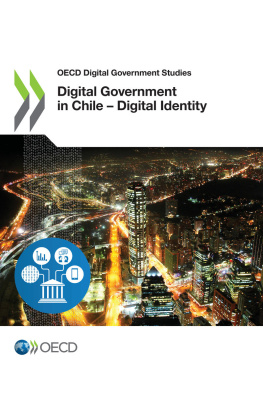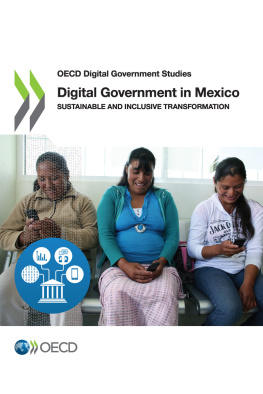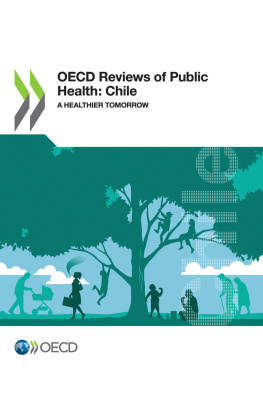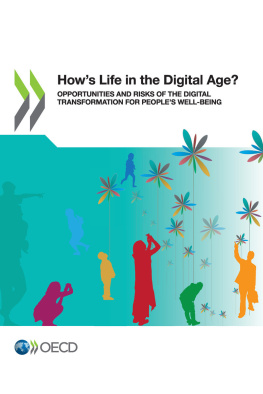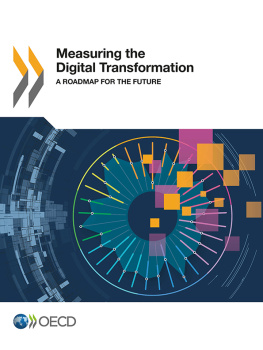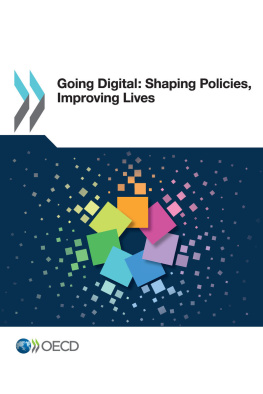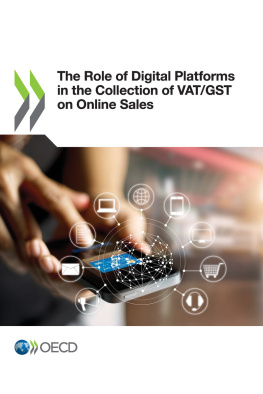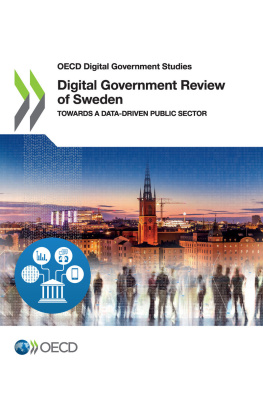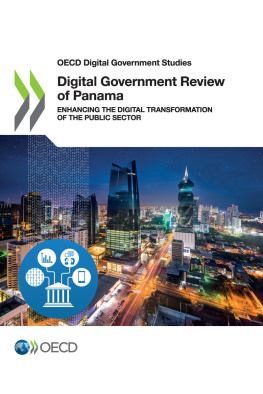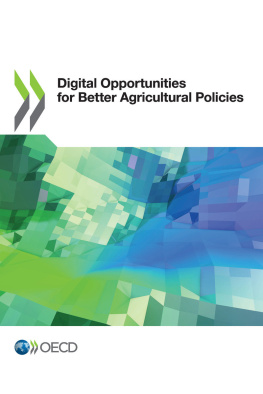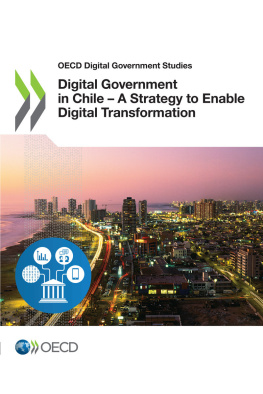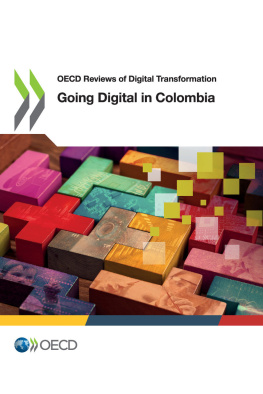OECD - Digital Government in Chile – Digital Identity
Here you can read online OECD - Digital Government in Chile – Digital Identity full text of the book (entire story) in english for free. Download pdf and epub, get meaning, cover and reviews about this ebook. year: 2019, publisher: OECD Publishing, genre: Politics. Description of the work, (preface) as well as reviews are available. Best literature library LitArk.com created for fans of good reading and offers a wide selection of genres:
Romance novel
Science fiction
Adventure
Detective
Science
History
Home and family
Prose
Art
Politics
Computer
Non-fiction
Religion
Business
Children
Humor
Choose a favorite category and find really read worthwhile books. Enjoy immersion in the world of imagination, feel the emotions of the characters or learn something new for yourself, make an fascinating discovery.
Digital Government in Chile – Digital Identity: summary, description and annotation
We offer to read an annotation, description, summary or preface (depends on what the author of the book "Digital Government in Chile – Digital Identity" wrote himself). If you haven't found the necessary information about the book — write in the comments, we will try to find it.
OECD: author's other books
Who wrote Digital Government in Chile – Digital Identity? Find out the surname, the name of the author of the book and a list of all author's works by series.
Digital Government in Chile – Digital Identity — read online for free the complete book (whole text) full work
Below is the text of the book, divided by pages. System saving the place of the last page read, allows you to conveniently read the book "Digital Government in Chile – Digital Identity" online for free, without having to search again every time where you left off. Put a bookmark, and you can go to the page where you finished reading at any time.
Font size:
Interval:
Bookmark:
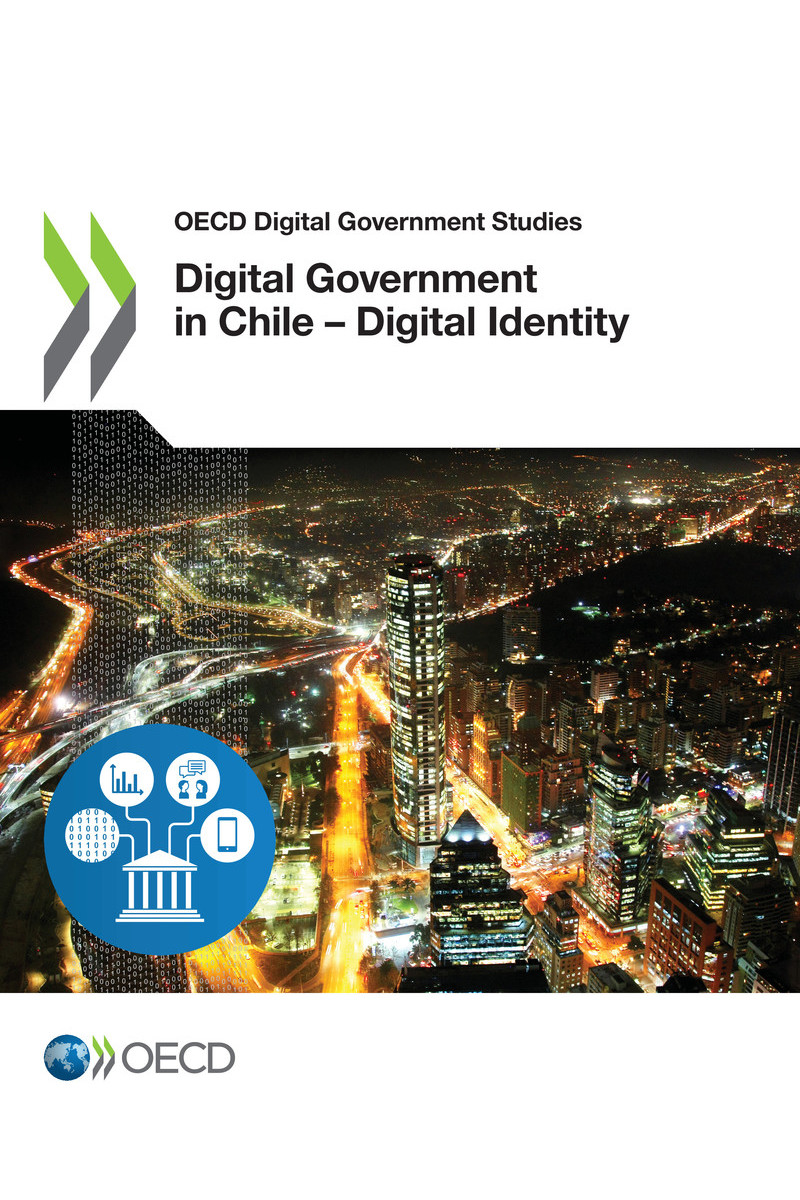
OECD (2019), Digital Government in Chile Digital Identity , OECD Digital Government Studies, OECD Publishing, Paris, https://doi.org/10.1787/9ecba35e-en .
Governments around the world are struggling with establishing personal identity in a digital age, since policies and legal frameworks that combine physical and digital identification elements are complex to develop. Digital Government in Chile Digital Identity aims to support the Government of Chile in designing effective and trustworthy identity management.
As requested by the Ministry General Secretariat of the Presidency ( Ministerio Secretara General de la Presidencia, MINSEGPRES) and the Ministry of Finance ( Ministerio de Hacienda ), the report discusses Chiles experience and benchmarks its performance against 13 OECD countries. The study is based on the OECD Recommendation of the Council on Digital Government Strategies and builds on the 2016 OECD report, Digital Government in Chile: Strengthening the Institutional and Governance Framework, which guided recent institutional reforms for digital government in Chile.
While Chile is a recognised digital government leader in Latin America, strong digital identity management will be critical for Chile to deliver effective digital government infrastructure and provide better services to its citizens.
This study also contributes to the global policy debate on the digitalisation challenges and opportunities across different policy areas, including digital government. This work is part of the Going Digital Project, which is the OECD flagship initiative designed to address this important policy issue.
Digital Government in Chile Digital Identity was prepared by the OECD Directorate for Public Governance (GOV), under the leadership of its Director, Marcos Bonturi.
The report was produced by the OECD Reform of Public Sector Division (GOV/RPS). It benefitted from the strategic orientation and revisions of Barbara-Chiara Ubaldi, Acting Head Division and lead of the Digital Government and Open Data Team.
The report was drafted by Benjamin Welby, Digital Government Policy Analyst, Reform of Public Sector Division, OECD; and Andrs Vasconcelos, digital government policy consultant. The authors are grateful to Liv Gaunt for editorial and administrative support.
The report benefitted from the expertise of the OECD Working Party of Senior Digital Government Officials (E-Leaders). This project would not have been possible without the support of the Chilean Ministry General Secretariat of the Presidency, the Ministry of Finance and its State Modernisation Programme.
Finally, the Secretariat would like to acknowledge the contributions of Andrs Bustamante, Head of the Digital Government Division of the Chilean Ministry General Secretariat of the Presidency, and Kareen Schramm, Policy and Digital Government Research Co-ordinator of the same institution. The OECD would also like to warmly thank Randall Ledermann and Felipe Gonzalez Zapata, Project Coordinators of the State Modernisation Programme, Ministry of Finance, Chile. Without their leadership and vision this project would not have been possible.
The challenge of proving someone is who they claim to be, were born in a particular place, live at a certain address and have the legal standing to do business, cross borders, access medical care or go about life is an age old problem that has historically been dealt with by creating physical tokens. As the digital transformation of society changes expectations in the delivery of public services, and governments seek greater efficiency in response to budgetary constraints, there is an ambition to move away from face to face interactions towards digitally enabled solutions.
Digital Government in Chile Digital Identity draws on the experience of 13 member and non-member countries ( Austria , Canada , Denmark , Estonia , India , Italy , Korea , New Zealand , Norway , Portugal , Spain , United Kingdom and Uruguay ) to establish an analytical framework for understanding how to develop and implement a digital identity (DI) approach that supports the transformation of government. The study aims to support the Government of Chile in enhancing their approach to DI as a piece of core digital government infrastructure and an enabler of improved service delivery. It uses a framework that covers the foundations for identity in terms of existing national identity infrastructure, policies and governance, technical solutions, the factors which impact adoption within the public sector and citizens, and the ways in which DI can create greater transparency of the working of government, and empower citizens through greater control of their data.
In providing concrete and actionable policy recommendations to underpin the effectiveness of DI efforts this study represents the third report completed by the OECD Secretariat to support the Government of Chile transition to a digital government. The Chilean Ministry General Secretariat of the Presidency ( Ministerio Secretara General de la Presidencia, MINSEGPRES) and the Chilean Ministry of Finance ( Ministerio de Hacienda ) have demonstrated the vision to build a government for the 21st century in working with the Secretariat to develop their approach first to the question of governance with the 2016 study Digital Government in Chile: Strengthening the Institutional and Governance Framework.
Digital Government in Chile Digital Identity is complemented by the Study Digital Government in Chile Making the Digital Transformation Sustainable and Long-Lasting, which looks at creating sustainable and strategic change, and a report that will focus on revamping Chiles service delivery strategy.
Font size:
Interval:
Bookmark:
Similar books «Digital Government in Chile – Digital Identity»
Look at similar books to Digital Government in Chile – Digital Identity. We have selected literature similar in name and meaning in the hope of providing readers with more options to find new, interesting, not yet read works.
Discussion, reviews of the book Digital Government in Chile – Digital Identity and just readers' own opinions. Leave your comments, write what you think about the work, its meaning or the main characters. Specify what exactly you liked and what you didn't like, and why you think so.

